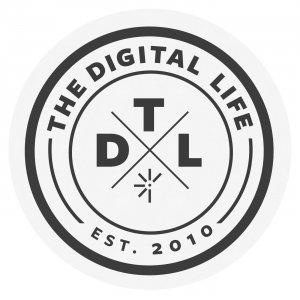The Digital Life

Designing Embeddables
Jon: Welcome to episode 155 of the Digital Life, a show about our adventures in the world of design and technology. I am your host Jon Follett, and with me is founder and co-host, Dirk Knemeyer.
Dirk: Hey there, Jon.
Jon: Hey, Dirk. For our podcast today, we're going to talk a little bit about the future of designing embeddables, which, of course are those things we might be putting into our bodies in future technologies certainly that are already here when you're talking about things like replacing joints and things like that, but, in the future there's going to be a lot more silicon going in there as well as we start putting computer chips and other things into our bodies that we're not doing too much of that just yet.
Dirk: You said we may be putting them. We will be putting them in. We can get into this more later, but the whole wearables thing is just a transitional phase, I mean, embeddables are going to be where it's at. Wearables are going to be clumsy clunky junk.
Jon: Yeah, there's an interesting trend with wearables. They're getting obviously smaller and closer to your body. You've got wearables that are now sort of part of your clothing and of course-
Dirk: The washing machines are going to love that.
Jon: It's all this continuum approaching the point at which we're going to start sticking-
Dirk: Just embed it. Stick it in there, Jon, stick it in there.
Jon: In that spirit then, our friends at Google, also known as Alphabet have started laying the groundwork for their embeddables. In particular, they got a U.S. Patent for technology that would let them implant an electronic lens directly into your eye. This is following a trend that we've been seeing from Google which is basically talking about or rather talking about, basically focusing on the eye and enhancing it, right. A few years ago, we had the Google Glass, of course-
Dirk: Which was wearable technology.
Jon: There's your wearable version. Then, recently, I believe Google was partnering with Novartis to work on a contact lens, which in that case contains some very tiny chip-set for detecting diseases like diabetes. That has yet to come to market, but you can sort of follow their progress. A little farther down the road and what this patent speaks to is actually injecting this technology into the eye and making it part of you, which, for my money, makes you a cyborg of some kind, right. We've discussed this before.
Jon: You can imagine a host of reasons you might want to do this; if you're older and your eyesight is failing, maybe this improves it; if you wear glasses or contact lenses, maybe you never have to wear glasses or contact lenses again. These are kind of the everyday problems that this might fix. Of course, you know that Google/Alphabet is not going to stop there. There's the whole idea of captioning photos or captioning video, or Lord knows what else, maybe seeing very far away, now you've got super human abilities, right, hey, I can see dirt coming from a mile away, or having the ability to zoom in really close to things, right, so, hey, I don't have a microscope anymore, because I can see I just shook hands with you and my hands are covered with bacteria, lovely.
Dirk: People who have seen HD porn knows more resolution is not always a better thing.
Jon: I would guess not. I will leave that to the listeners who know what you're talking about. The increasing in technology that's sort of adhered to this is interesting, but releases all kinds of issues, right, so, the same issues that everybody had with Google Glass and the famous moniker "well, now you're a glass-hole, because you're basically recording our conversations, perhaps surreptitiously, you're snapping photos of people when they're unaware, you're invading people's privacy"-
Dirk: What's privacy, that's not something I'm familiar with?
Jon: What is privacy, right, so, now you've got this embeddable that can do all of those things and the only way you know it is you don't,






 Visit Podcast Website
Visit Podcast Website RSS Podcast Feed
RSS Podcast Feed Subscribe
Subscribe
 Add to MyCast
Add to MyCast